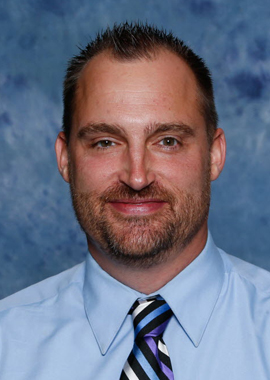By Janie Magruder
GCU News Bureau
What would your classroom, office or department be like if everyone worked as if the Lord was their employer? Would your colleagues get along better, would the workday be more joyful and productive, and at the end of the day would you leave the building with less grousing on your lips?
The exploration of that concept was front and center at Friday’s Integration of Faith, Learning and Work “Lunch and Learn,” the fourth in a series this academic year. Nearly 90 Grand Canyon University faculty members and others packed Howerton Hall on campus to hear words of wisdom on the topic, “Work That Honors God.”
Interestingly, the guest speaker, Tamara Wisely, a professor in the College of Nursing and Health Care Professions, and program moderator, Dr. Jason Hiles, dean of the College of Theology, independently chose the same Bible verses to frame their remarks:
“O people, the Lord has told you what is good, and this is what He requires of you: to do what is right, to love mercy and to walk humbly with your God.” (Micah 6:8)
“Doing good is easy for most,” Wisely said. “Doing what’s right comes from the heart, and if you use God’s blueprint, the Bible, you can understand what God’s word says about doing His work.”
Doing the right thing, readily forgiving others and walking humbly can be especially challenging in a busy, competitive workplace, she acknowledged. But it is possible if praying, often and about everything, and being true to your values and intentional about your personal and professional growth are on your front burner.
If we are serious about honoring God, whether on or off the time clock, we will work on our personal or professional growth by knowing ourselves and our purpose, passion and commitment, Wisely said. We will work hard to recognize what, how and when to change about ourselves and evaluate our experiences on a daily basis, she noted.
If we are committed to honoring God with high character, Wisely said, we will choose to be positive and honest, take ownership of situations and embrace bad experiences by asking, “What can I learn?”
Honoring God with servant leadership is achieved by, among other things, putting the needs of others first, developing new leaders, leading by example and living the “Seven Pillars of Servant Leadership” as espoused by James W. Sipe and Don M. Frick.
In all of this, prayer is key, said Wisely, who recommended praying before all meetings and classes. “Many times I’ll hear people say, and this depends on their walk … ‘Why do we even pray? If God knows it all and is all present, why do we pray?’” The answer, according to 20th-century evangelist Oswald Chambers, is that prayer changes us so that we can change things, even in the workplace, she said.
An ideal prayer: “Lord, let my words be Your words, let my actions be Your actions and change my heart to align with Your will.”
Wisely called on her audience to “step out and step up” in order to do God’s work. In response to a comment that stepping out is outside the comfort zone of some students, she said all that many need is an example and an invitation.
“They are so hungry to step out, but they need to know how and what that looks like and they need to know you are doing it, too,” she said.
Hiles used Exodus 31:1-8 to point out that God has called us to be committed to excellence, to do things well in our workplaces.
“Work that honors God entails excellence, but not only excellence in work, but excellence in workers,” he said. “That relates to what we do, the condition of our hearts as we work and how we go about our work.”
In Micah 6:6-7, he noted, God’s people are trying to be transactional with God about how they can draw nearer to Him:
“With what shall I come before the Lord and bow myself before God on high? Shall I come before Him with burnt offerings, with calves a year old? Will the Lord be pleased with thousands of rams, with ten thousands of rivers of oil? Shall I give my firstborn for my transgression, the fruit of my body for the sin of my soul?”
Micah “clears the air” with verse 8 — do justice, love kindness and walk humbly with your God, Hiles said.
Of course, acting justly means not working in prostitution, human trafficking and drug smuggling, but all types of work can be done in unrighteous ways, even televangelists who rip off their viewers, he said. Christians do their jobs by demonstrating concern for each other, challenging systemic injustice and creating opportunities for the oppressed and underprivileged, Hiles said.
Loving mercy requires a heart check, he said, to ensure we truly do love others as we love ourselves, that we put their interests ahead of our own and that we serve them, rather than “lord” our authority or position over them. While we often create pecking orders in our offices, Jesus embraced the anti-pecking order, dining with sinners and tax collectors rather than the Pharisees, Hiles said.
From Hosea 6:6, “… ‘I desire mercy, and not sacrifice.’ For I came not to call the righteous, but sinners.” Those whose hearts are close to God, Hiles said, tend to consider the needs of others over their own, but those far from God focus on themselves, he said.
Closing his presentation, Hiles quoted from 1 Peter 5:5 on walking humbly with God: “Clothe yourselves, all of you, with humility toward one another, for ‘God opposes the proud but gives grace to the humble.’”
The next Lunch and Learn, with Moronke Oke and a panel from the Colangelo College of Business, is Friday, Feb. 19. Faculty RSVPs for lunch are required (click here).
Contact Janie Magruder at (602) 639-8018 or [email protected].





































































